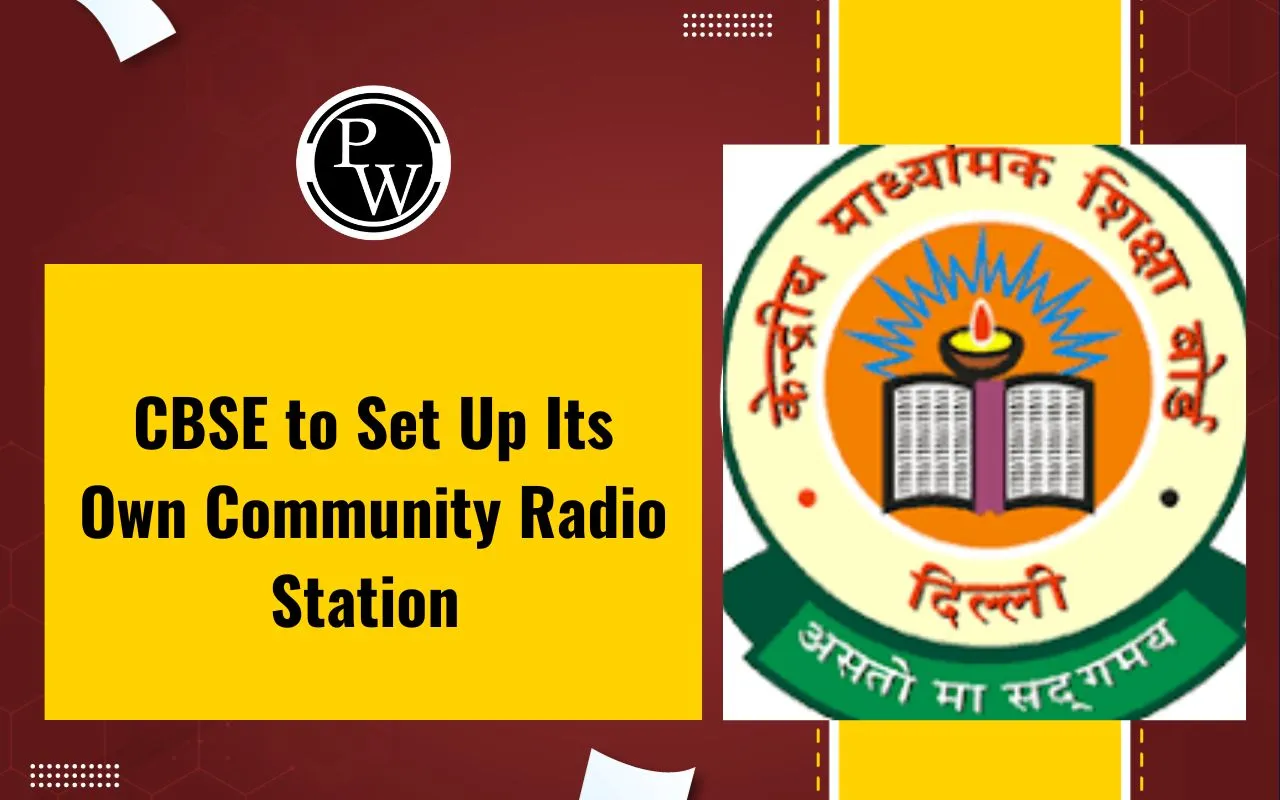
CBSE to Set Up Its Own Community Radio Station: The Central Board of Secondary Education (CBSE) is planning to set up its own community radio station aimed at students, teachers, and other education stakeholders. This initiative was recently approved by the board’s Governing Body, and the process of applying for a broadcasting license has begun.
The community radio station will provide educational content, including lessons aligned with the NCERT curriculum, and will build on the success of the existing Shiksha Vani podcast by CBSE. The radio will focus on delivering localized and accessible programs to help students and teachers across different regions, especially in areas where digital access may be limited.
The plan for CBSE to set up a community radio station was recently approved by the board's Governing Body. Officials have now begun the process of applying for the necessary broadcasting license.
Over the next six months, CBSE will conduct detailed consultations with educators and stakeholders to design the structure and operational framework of the radio station.
This initiative reflects CBSE's ongoing commitment to improving educational outreach and accessibility. Through community radio, CBSE aims to reach students in both urban and rural areas, including those with limited access to conventional learning resources.
CBSE to set up Community Radio Station is expected to broadcast a variety of educational programs that meet the needs of students and teachers. The content will likely include lessons aligned with the NCERT curriculum, career guidance, exam preparation tips and discussions on health, nutrition, and social issues relevant to young learners.
While the exact programming details will be finalized after the broadcasting license is secured, CBSE officials have emphasized that the station will promote inclusive and localized content. This may involve broadcasts in regional languages and dialects to better engage listeners from different parts of the country.
This new community radio initiative builds upon the success of the Shiksha Vani podcast by CBSE, which has already gained popularity among students from classes 9 to 12. Available on the Play Store for Android devices, the podcast offers subject-based audio lessons following the NCERT syllabus.
With over 400 episodes released, Shiksha Vani has been a valuable resource for students seeking convenient and accessible learning outside the classroom. The community radio station will expand on this idea by offering live and interactive content, potentially reaching even more learners across India.
Community radio operates as the third tier of broadcasting in India, distinct from public and commercial radio stations.
These low-power stations are usually managed by local communities, educational institutions, and non-profit organizations.
Their main goal is to provide programming that reflects local issues and interests such as education, agriculture, health, and social welfare.
One of the key benefits of community radio is its ability to broadcast in local languages, making it easier for marginalized and rural populations to stay informed and engaged.
Currently, India has around 540 community radio stations, with government support aimed at expanding this network, particularly in underserved areas.
